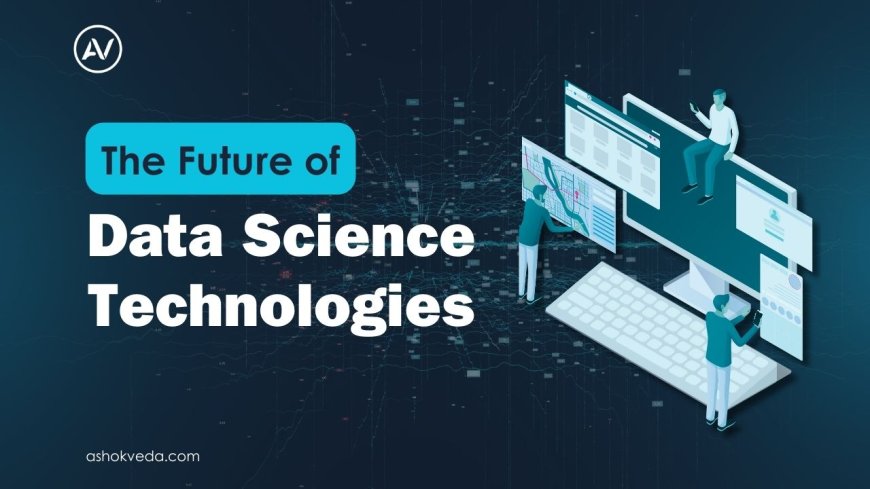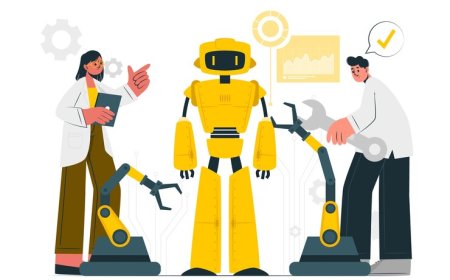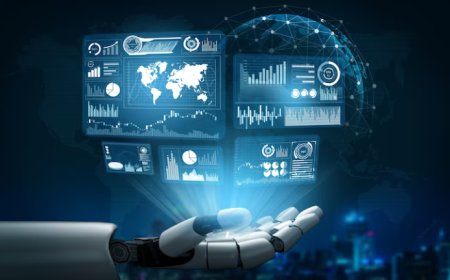The Future of Data Science Technologies
Discover emerging trends in data science, machine learning, AI, big data, analytics, IoT, predictive modeling, data mining, algorithms.

Data Science Technologies enable organizations and technology to change constantly in modern society. These tools, including Machine Learning, Artificial Intelligence, Deep Learning, and Natural Language Processing (NLP), are reshaping how companies work and make decisions. By using Data Science Technologies, businesses can turn large amounts of data into useful insights, helping them plan and make better choices. Machine Learning helps find patterns and trends that people might miss, while Artificial Intelligence can handle complex tasks, making work more efficient. Deep Learning, a part of Machine Learning, is great at processing unstructured data like images and text, which is useful for things like facial recognition and understanding emotions in text. NLP helps computers understand and communicate in human language, improving interactions between people and machines. Combining these technologies with IoT (Internet of Things) devices creates a network of gadgets that share data in real time. This mix of technologies is leading to new solutions and helping many industries move forward.
Key Trends Shaping the Future of Data Science Technologies
Artificial Intelligence and Machine Learning
AI and machine learning are central to the advancement of data science. As algorithms become more capable of learning from data, the range of potential applications grows. We can anticipate these technologies becoming more integrated into various aspects of business and everyday life, from personalized marketing to autonomous vehicles.
Big Data and Advanced Analytics
The amount of data generated globally continues to grow. Big data technologies will evolve to enable businesses to process and analyze large datasets in real time. Advanced analytics techniques, such as predictive and prescriptive analytics, will become more accessible, helping organizations forecast trends and make proactive decisions.
Natural Language Processing (NLP)
NLP is enhancing how machines understand and interact with human language. Future advancements in NLP will enable smoother communication between humans and machines, leading to more intuitive interfaces and improved user experiences. Applications like chatbots, virtual assistants, and sentiment analysis will become more refined and widely used.
Edge Computing
As the Internet of Things (IoT) expands, edge computing will be important for data processing. By processing data closer to its source, edge computing reduces latency and bandwidth usage, enabling real-time analytics and decision-making. This will be especially useful in areas like autonomous vehicles, smart cities, and industrial IoT.
Data Privacy and Security
With increasing reliance on data, ensuring its privacy and security is crucial. Future data science technologies will focus on developing strong security measures to protect sensitive information. Techniques like differential privacy, homomorphic encryption, and blockchain will play key roles in safeguarding data and maintaining user trust.
Emerging Technologies in Data Science
Quantum Computing
Quantum computing has the potential to change data science by solving complex problems that classical computers struggle with. With its ability to process large amounts of data simultaneously, quantum computing could enhance machine learning algorithms, optimization problems, and cryptographic systems.
Automated Machine Learning (AutoML)
AutoML aims to make machine learning more accessible by automating the process of applying it to real-world problems. By simplifying model selection, hyperparameter tuning, and feature engineering, AutoML allows non-experts to build effective models, accelerating the adoption of data science in various industries.
Explainable AI (XAI)
As AI systems become more complex, understanding their decision-making processes is important. Explainable AI focuses on making AI models transparent and interpretable, allowing humans to trust and validate their outcomes. This will be particularly relevant in regulated industries like healthcare, finance, and legal sector.
Graph Analytics
Graph analytics involves analyzing relationships and patterns within data represented as graphs. This technology is useful in social network analysis, fraud detection, and recommendation systems. As graph databases and processing techniques advance, graph analytics will become more common in uncovering insights within connected data.
Societal Implications of Future Data Science Technologies
Healthcare Advancements
Data science will play a key role in advancing healthcare. Predictive analytics and AI-driven diagnostics will enable early detection of diseases, personalized treatment plans, and improved patient outcomes. Additionally, data-driven research will accelerate the discovery of new drugs and therapies.
Smart Cities
The integration of IoT, edge computing, and big data will transform urban areas into smart cities. Real-time data from various sources, such as traffic sensors, public transportation, and energy grids, will enable efficient resource management, reduced congestion, and enhanced quality of life for residents.
Education and Learning
Data science technologies will revolutionize education by enabling personalized learning experiences. Adaptive learning platforms powered by AI will cater to individual student needs, improving engagement and academic performance. Furthermore, data-driven insights will help educators identify areas for improvement and optimize curricula.
Environmental Sustainability
Data science can contribute significantly to environmental sustainability efforts. Predictive analytics and IoT sensors can monitor and manage natural resources, optimize energy consumption, and reduce waste. By leveraging data, we can make more informed decisions to protect our planet for future generations.
What Are The Impact of Future Data Science Technologies on Businesses?
-
Enhanced Decision-Making: The future of data science will provide businesses with more accurate and timely insights, leading to better decision-making. Advanced analytics and AI-driven tools will offer deeper understanding and foresight, helping organizations stay competitive in a changing market.
-
Improved Customer Experiences: Personalization will improve with the integration of AI and NLP technologies. Businesses will be able to offer more tailored experiences to their customers, enhancing satisfaction and loyalty. Real-time data analysis will also enable proactive customer service, addressing issues before they escalate.
-
Operational Efficiency: Automation and advanced analytics will streamline business operations, reducing costs and increasing efficiency. From supply chain optimization to predictive maintenance, data-driven technologies will help organizations operate more smoothly and respond quickly to changes.
-
Innovative Products and Services: Data science will continue to drive innovation, leading to the development of new products and services. Industries like healthcare, finance, and retail will benefit from predictive analytics, personalized recommendations, and intelligent automation, creating new value for customers.
The future of data science technologies is filled with potential, with advancements in AI, machine learning, big data, and emerging fields like quantum computing and edge computing set to impact industries. Businesses that embrace these technologies will gain a competitive edge through enhanced decision-making, improved customer experiences, and operational efficiency. However, addressing challenges related to data privacy, bias, and skill gaps will be essential to fully realize the benefits of these technologies. As we move forward, the continued evolution of data science will shape a smarter, more efficient, and more sustainable world.





































